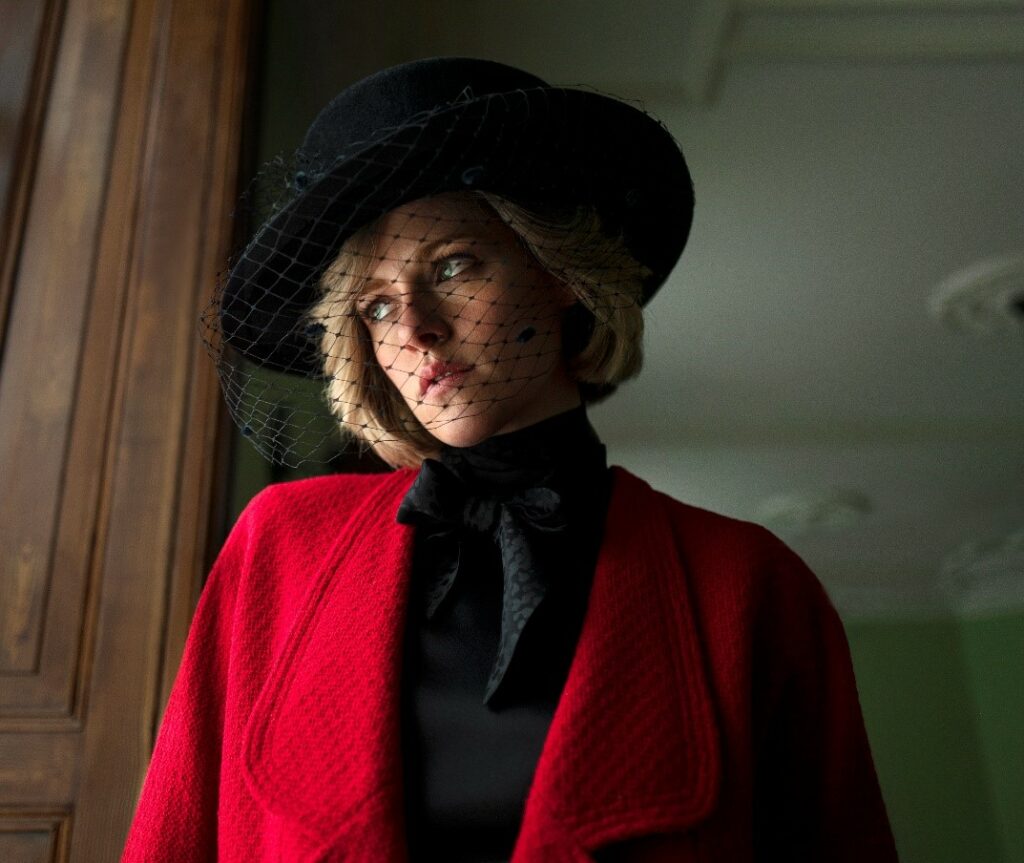Spencer is an audacious piece of art, provocative and scathing in its depiction of royalty. This is not a film about anyone real; it is a complete fiction, about events that did not happen and a fantasy that is absurd. However, it is very real in its imaginings of the sort of tragedy that Diana Spencer found herself in. It speculates about history, and finds a unique angle with which to view it. Art should be this bold, and daring, and probing. Spencer is a work of genius that still finds something new to say about a story that has been retold so many times before.

Director Pablo Larraín has now completed a thematic trilogy of biopics, with Spencer following the fun and thrilling Neruda and the sublimely difficult Jackie. Spencer will certainly not please royalists or those with any fondness for the British Royal Family, but rather presents them from an outsider’s view, that of a Chilean director and American actress. There is no love for the Royals, only scorn at their hypocrisy and stubbornly stupid traditions.
Larraín’s films have often communicated the filmmaker’s fascination with Augusto Pinochet, a Chilean dictator in the 1970s and 1980s. Pinochet may have lost power in 1990 but during his reign, the United Kingdom was a loyal supporter (and in Thatcher’s case, an admirer) of his rule, going so far as to sell him arms and grant him diplomatic immunity after Pinochet oversaw the death and torture of thousands of Chilean citizens. Setting Spencer over Christmas some time in the early 1990s, Larraín mocks Britain, depicting it as a country stuck in its past and committed to conservatism. In the film, the Queen’s Christmas Message makes reference to those recently freed from dictatorship, undoubtedly a pointed jab at the Britain’s deep-rooted hypocrisy, history of repression, and its support for Pinochet.
But Spencer digs deeper, specifically showing the Royal Family as its own little authoritarian world, one of rules and expectations and extremely limited freedom. The Queen is the dictator of her family: early on, we see how even food preparation is done in a military fashion, with orders being shouted and subjects obeying. It’s a domesticated form of militarism promoting a culture of oppression and discipline, not one of freedom nor sense. Timothy Spall plays a Major in charge of running the Christmas festivities, who rules over Diana thanks to his house staff, who function as his network of spies – yet another fascist parallel. In a telling scene, he talks of how soldiers die for the crown. To Diana and any outsider, the comment is contextually ridiculous, and the film plays it as such. Spencer shows the Royal Family as a manifestation of rotting conservatism and decaying extravagance, being backwards-looking and ruthless. It’s a brave depiction, and something that’s all too rare to see.

Larraín previously placed Chilean poet-diplomat Pablo Neruda in a detective movie, and positioned Jackie Kennedy in a fantasy world. Keeping up his genre-meets-biopic approach, Spencer is a horror movie. Its oppressive atmosphere, with shots that entrap viewers with Diana, make for a strangling and claustrophobic experience. The score, by Jonny Greenwood, is haunting and mournful. With the Gothic-inspired weather, use of hallucinations, and depictions of self-harm, Spencer’s version of Diana is of a woman stuck in a nightmare.
There are times where the film pushes too far into its horror leaning, and it can get silly – especially when Anne Boleyn turns up – and the final act almost falls in on itself when it commits to more overt genre trappings. But it mostly works, thanks to the balance offered by its far more joyous ending. The horrors are confined to the past, not the future. Spencer is a film of mental dilapidation, of Diana falling apart and struggling to reconcile herself with her image. The evil of the social tyranny depicted in Spencer is that everything becomes meaningless, and love means nothing to those committed to oppression. Ultimately, Spencer is about finding freedom, because that’s the only way to feel love.
Spencer is a dark film. Set in an unnamed year with imagined characters, it is open in its disrespect for reality; Larraín places Diana in abstraction, allowing for a keener character study than a biopic formula would permit. Kristen Stewart sells every moment, embodying Diana entirely in spite of the film’s style-driven approach and deviations from fact: and Spencer bathes in the absurd, both due to its indulgent artistic flourishes and the inherent farcicality of royal life.
Spencer may be too aggressively anti-establishment to please everybody, but its refusal to conform to the norms of cinema, genre, and cultural tradition will ensure it finds love amongst those willing to seek out something different and challenging. Stewart is superb at the centre of it all, and Pablo Larraín’s vision proves itself as both a triumph of artistic expression and a brilliantly realised, profound, real-life fantasy.
Spencer screened as part of the London Film Festival 2021, and is scheduled for cinema release on November 5th, 2021.
